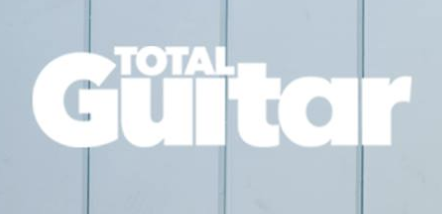Essentials Lesson: Get Playing Now (TG223)
If you've just picked up your first guitar, TG's beginner video lessons are for you
Want all the hottest music and gear news, reviews, deals, features and more, direct to your inbox? Sign up here.
You are now subscribed
Your newsletter sign-up was successful
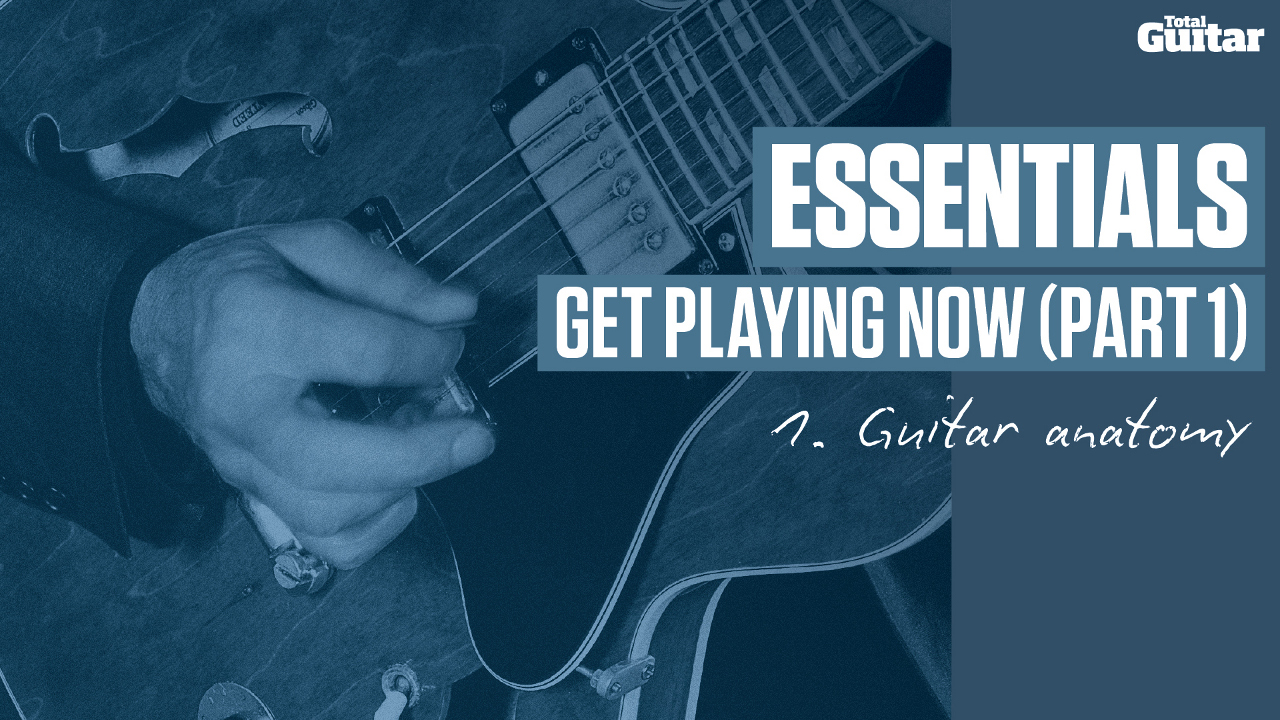
Essentials Lesson: Get Playing Now (TG223)
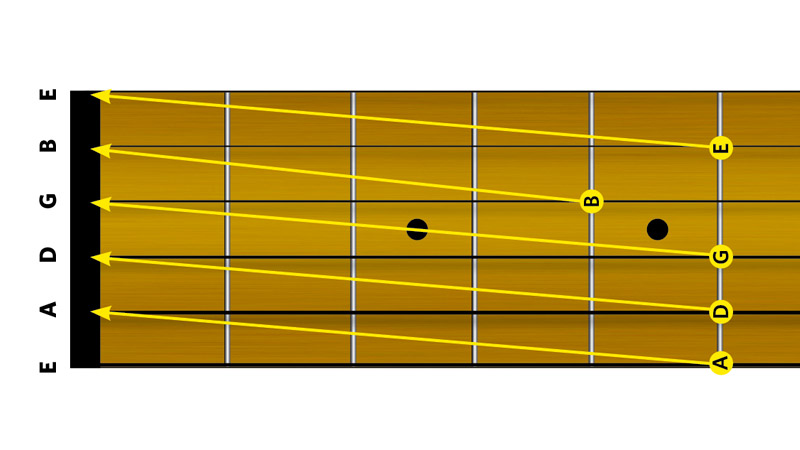
TG223 tuning notes
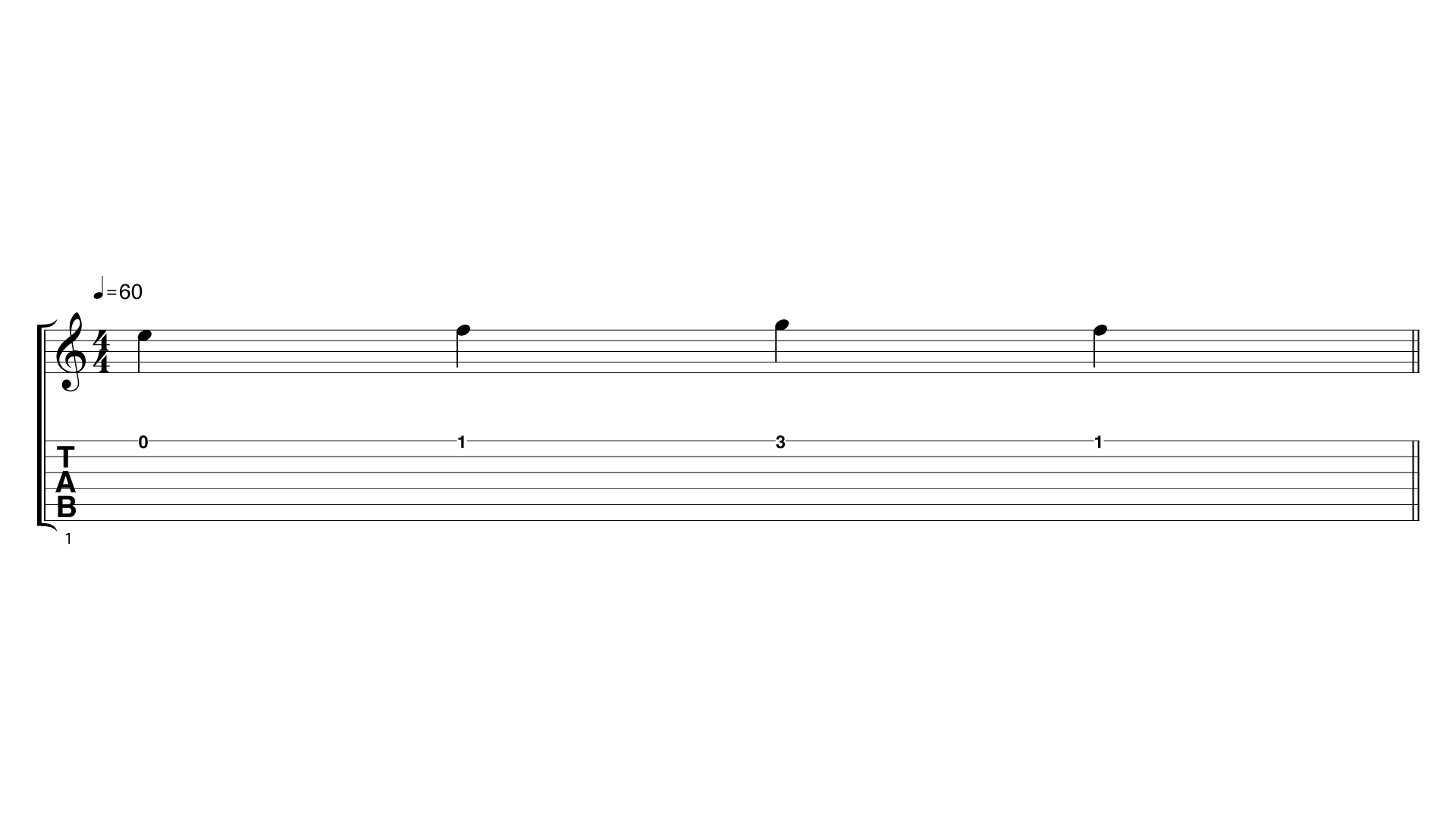
TG223 tab ex1
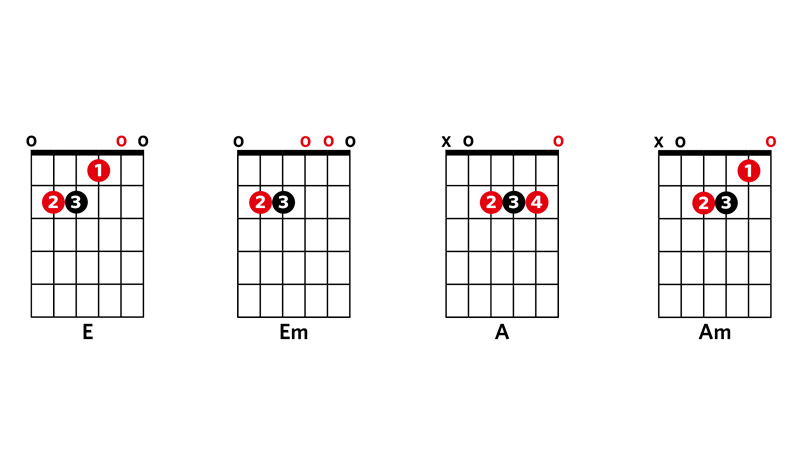
TG223 chords
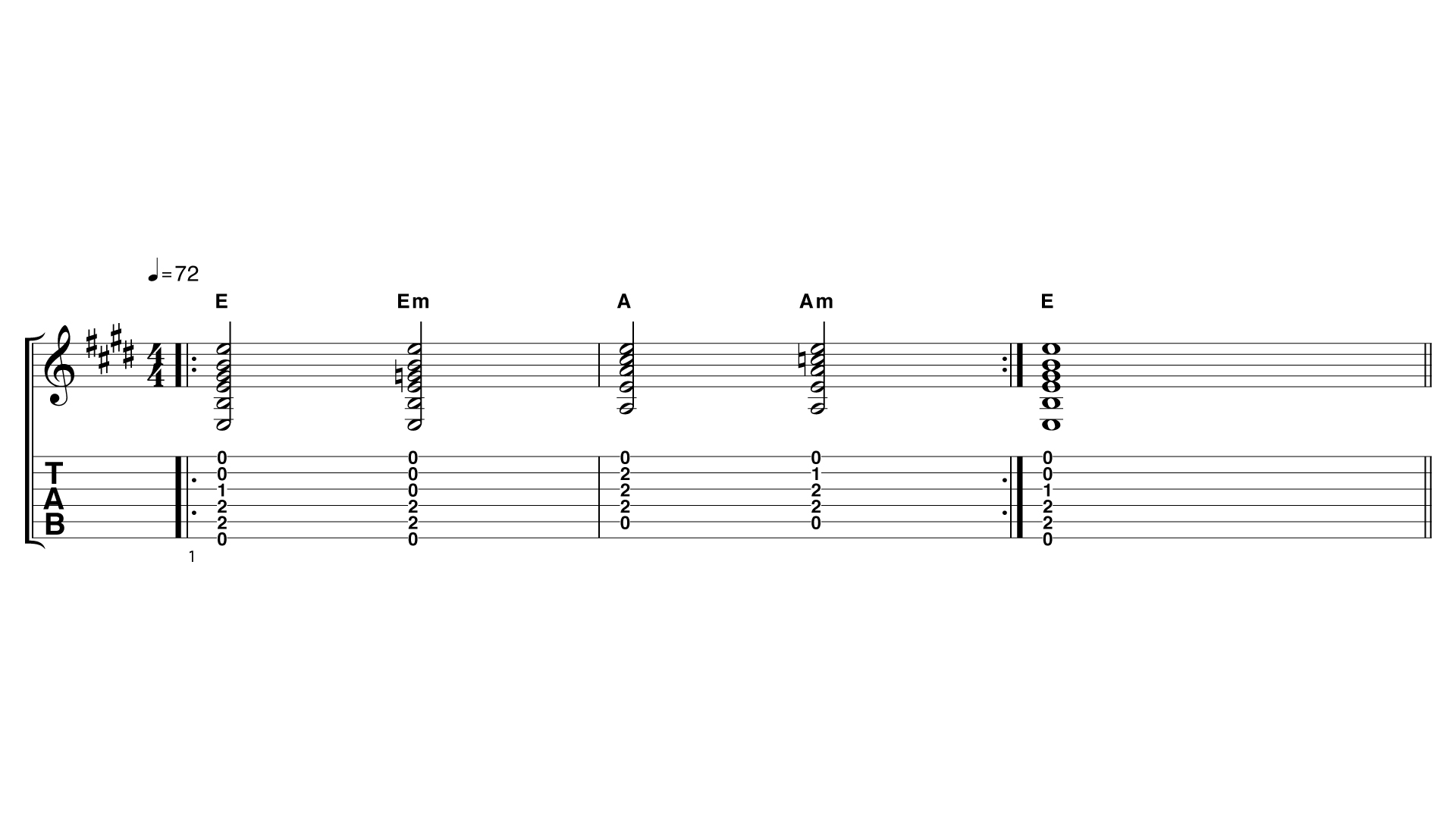
TG223 tab ex2
Calling all absolute beginners! From tuning up to playing your first notes, TG brings you everything you need to get started with the guitar.
Originally from Total Guitar issue 223 (January 2012)
Introduction
If you've just begun playing the guitar, there are a few things you'll need to do before you start making music. First, familiarise yourself with your instrument. Of course, the strings are responsible for the sound, butthe frets help generate the notes you want to play and the machineheads adjust the tuning. Tuning your guitar strings to the right notes is vital. Learn the string names then tune up by adjusting the machineheads on your guitar.
Once you've tuned up, you can start playing. Notes are created on the guitar by pressing down on the strings by the frets. You can play single notes or several notes together (known as 'chords'). All of this is covered in more detail in the five videos shown here.
Guitar anatomy
1. Strings: pick the strings to make a sound. 2. Neck and fretboard: the strings are suspended over the neck and fretboard. 3. Frets: press a string down on a fret to change the pitch. 4. Bridge: the strings are affixed to the bridge and the machineheads. 5. Machineheads: these adjust the string tuning.
Tuning up
Starting with the lowest note (the fattest string), the six strings on the guitar are called E, A, D, G, B and E. Make up a simple mnemonic to help you remember the string names, for example, 'Every Angry Dog Goes Bad Eventually'.
Check your guitar is in tune as follows: first, press down on the sixth string (low E) at the 5th fret. It should sound the same as an open fifth string (played without pressing on any frets). All the strings are tuned to the same pitch as the 5th fret of the string below it, bar the second string, which tunes to the 4th fret of the third string.
Want all the hottest music and gear news, reviews, deals, features and more, direct to your inbox? Sign up here.
Fretted notes and tab
Press down on a string just behind a fret and pick the string to sound a note. Many players use a pick to pluck the strings. Notes are written in guitar tab. Our simple example in the video tells you to play the open first string, then 1st fret, 3rd fret and 1st fret again.
Chords
A chord is three or more notes played together. Shown here are the fingering patterns for four essential beginner guitar chords. The numbers tell you which of your four fretting fingers to use. Black dots are 'root notes', ie, in the A and A minor chords the A notes are shown in black. Red dots are for other notes in the chords.
Chord sequence
This musical example uses all four of the above chords. Practise speeding up your chord changes. E to E minor is easy; just take your first finger off of the neck. For the other changes, keep your movements as small and efficient as possible. When you've done some practice, try playing along with the video.
Tutor: Chris Bird
Videographer: Martin Holmes
Click here to go to part 2 of Get Playing Now
Buy a copy of Total Guitar here: http://bit.ly/13D1Au4
Total Guitar is Europe's best-selling guitar magazine.
Every month we feature interviews with the biggest names and hottest new acts in guitar land, plus Guest Lessons from the stars.
Finally, our Rocked & Rated section is the place to go for reviews, round-ups and help setting up your guitars and gear.
Subscribe: http://bit.ly/totalguitar


